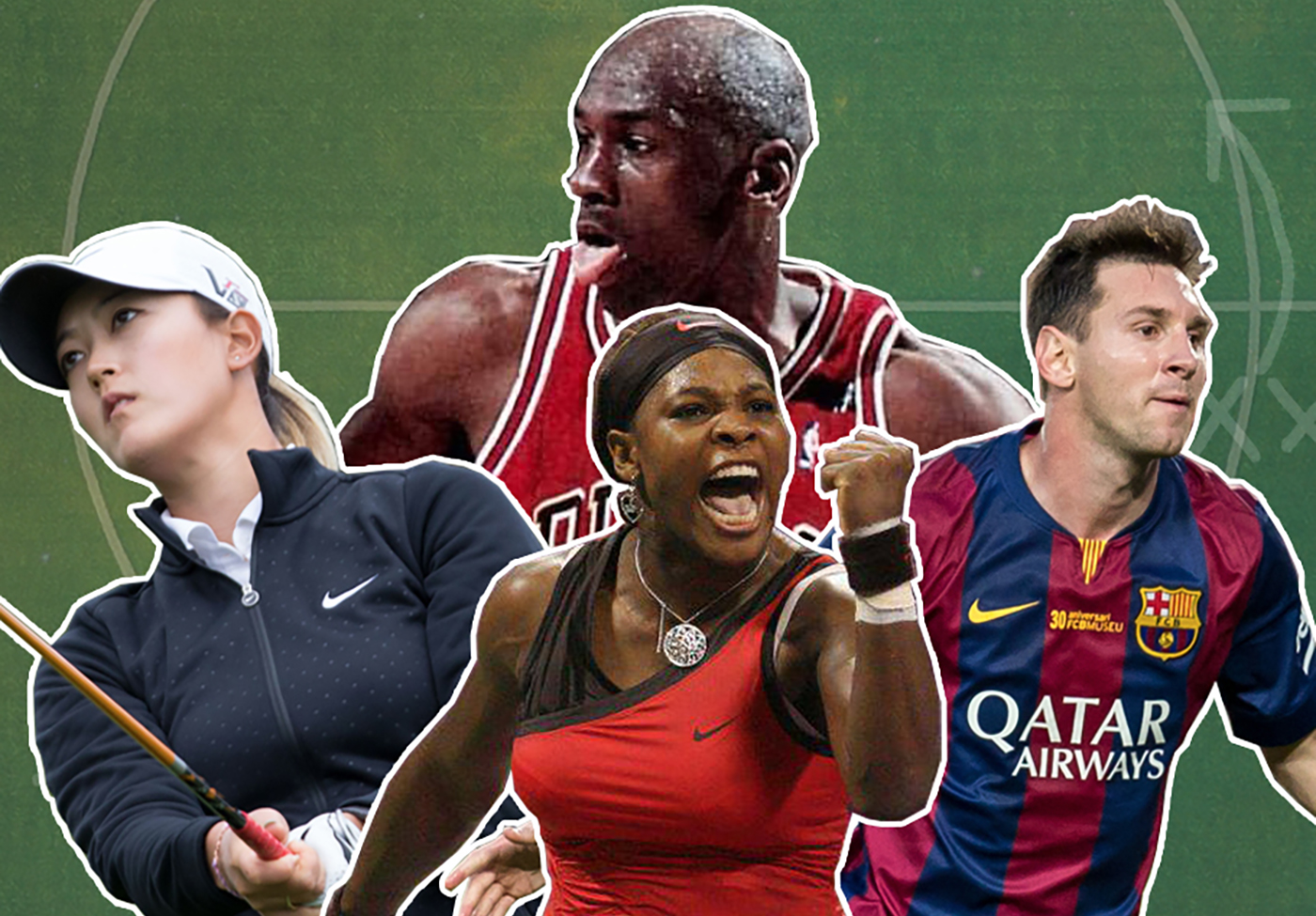July 30, 2020 7:53 pm
Friday, We End Our ‘Making a Phenom’ Mini-Series Exploring the Tech and Ethics of Sports
On this episode of StarTalk Sports Edition, we’re capping off our Making a Phenom mini-series. So far we’ve covered genetics with David Epstein and Stuart Kim, PhD, the brain of an elite athlete with Heather Berlin, PhD, and Joan Vickers, PhD, and what it takes to be great with Angela Duckworth, PhD, and Pete Carroll. In our final episode, we’re exploring the technology and ethics behind an athlete becoming a phenom.

Image Credit (Clockwise from top): Michael Jordan: Unknown author / Public domain; Lionel Messi: L.F.Salas / CC BY (https://creativecommons.org/licenses/by/2.0); Serena Williams: Hanson K Joseph / CC BY-SA (https://creativecommons.org/licenses/by-sa/4.0); Michelle Wie: Keith Allison from Hanover, MD, USA / CC BY-SA (https://creativecommons.org/licenses/by-sa/2.0).
Neil deGrasse Tyson and co-hosts Gary O’Reilly and Chuck Nice are joined in the first segment by Rayvon Fouché, PhD, Director of American Studies at Purdue University and author of Game Changer: The Technoscientific Revolution in Sports. Ray is ready to dive right in as we explore who should really get credit when world records are broken: the athlete or the scientists and engineers behind the athlete?
Is sports becoming a competition between scientists and engineers instead of a competition between athletes? We discuss the importance of a level playing field. Ray tells about the difference between written rules and the rules by which everyone plays. We investigate the role of technology and why access plays a pivotal part in making certain technologies fair game. We ponder how artificial intelligence will influence sports. Ray tells us why the randomness of humanity makes sports what it is today.
In our next segment, bioethicist and author Arthur Caplan, PhD, drops by to guide us through a discussion on the ethics of technology in sports. Is it ethical to replace body parts with mechanical or better versions of what they were if it’s just to gain an edge? Arthur tells us why people want to see humans competing in sports, not pharmacists. We also explore the emerging world of biodata in professional sports. And, Arthur explains why performance enhancement is much more detrimental to sports deeply rooted in their history.
In our final segment, Rayvon re-joins the crew to share some final thoughts on the state of sports today. You’ll hear why the FIA, the governing body of Formula 1, is seen as the best governing body in sports. We talk about the difference between providing parameters and following strict rules. All that, plus, Gary and Chuck share their thoughts on the relationship between technology and sports.
Please join us tomorrow for Making a Phenom – Tech at 7pm ET right here on our website, as well as on Apple Podcasts, Google Play Music, SoundCloud, Spotify, Stitcher, and TuneIn. If you’re a StarTalk+ Patron or an All-Access subscriber, you can watch or listen to this episode ad-free at 7pm, too.
That’s it for now. Keep Looking Up!
– Ian Mullen
Get the most out of StarTalk!
Ad-Free Audio Downloads
Ad-Free Video Episodes
Stickers & Mugs
Live Streams with Neil
Priority Cosmic Queries
Early-Access Videos
Learn the Meaning of Life
...and much more

 Become a Patron
Become a Patron

